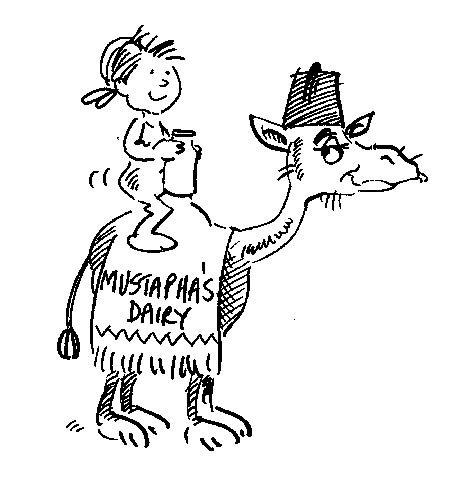
Researchers at the Ben-gurion University of the Negev in Israel recently used camel’s milk to treat eight children (aged four to ten years) suffering from severe food allergies (including dairy) who had not responded to conventional treatments.
Within 24 hours of starting to drink the camel’s milk (which formed their only food for a two week period, after which it was supplemented with ‘normal’ food) all the children showed diminished symptoms, and within four days all symptoms had disappeared. There was no recurrence of symptoms during the remains of the trial. One child from the US remained symptom free after returning to the US even though she was no longer able to drink camel’s milk, which is not available in the US or Western Europe.
Camels are not ruminant animals (like cows) and their milk and physiology is vastly different to that of ruminants. Camel milk contains only 2% fat, which is polyunsaturated and completely homogenised. Lactose is present in concentrations of 4.8% but is easily metabolised by those suffering from lactose intolerance.
Camel’s milk also includes a different beta-casein to cow’s milk and no beta-lactoglobulin - the two components of cow’s milk that are most allergenic. However it does include immunoglobulins similar to those in mother’s milk, which reduce children’s allergic reactions and strengthen their future response to food. Camel’s milk also contains
a number of ‘protective proteins’ (lactoferrin, lactoperoxidase, NAGase and PGRP) that exert immunologic, bacteriocidal and viricidal properties.
Traditionally, in many Arab countries, camel’s milk is given to children to strengthen their immune system, while its healing effects have been noted in other diseases associated with the immune system including autism.
The only obstacle in the way of wide spread use of camel’s milk in the treatment of allergies in the UK is pasteurisation. The Ministry of Health demands the pasteurisation of all milks - but pasteurisation will destroy all immunoglobulins, protective proteins and bacterial enzymes in the camel’s milk - although it will not change its fat content, non-allergenic proteins and digestible lactose.
Yosef Shabo MD, Reuben Barzel MD, Mark Margoulis MD & Reuven Yagil DVM. Immunology and Allergies 2005;7:796-798 Courtesy of Dr Harry Morrow-Brown
First published in June 2006
Read more
More research on other animal milks
Top of page |











